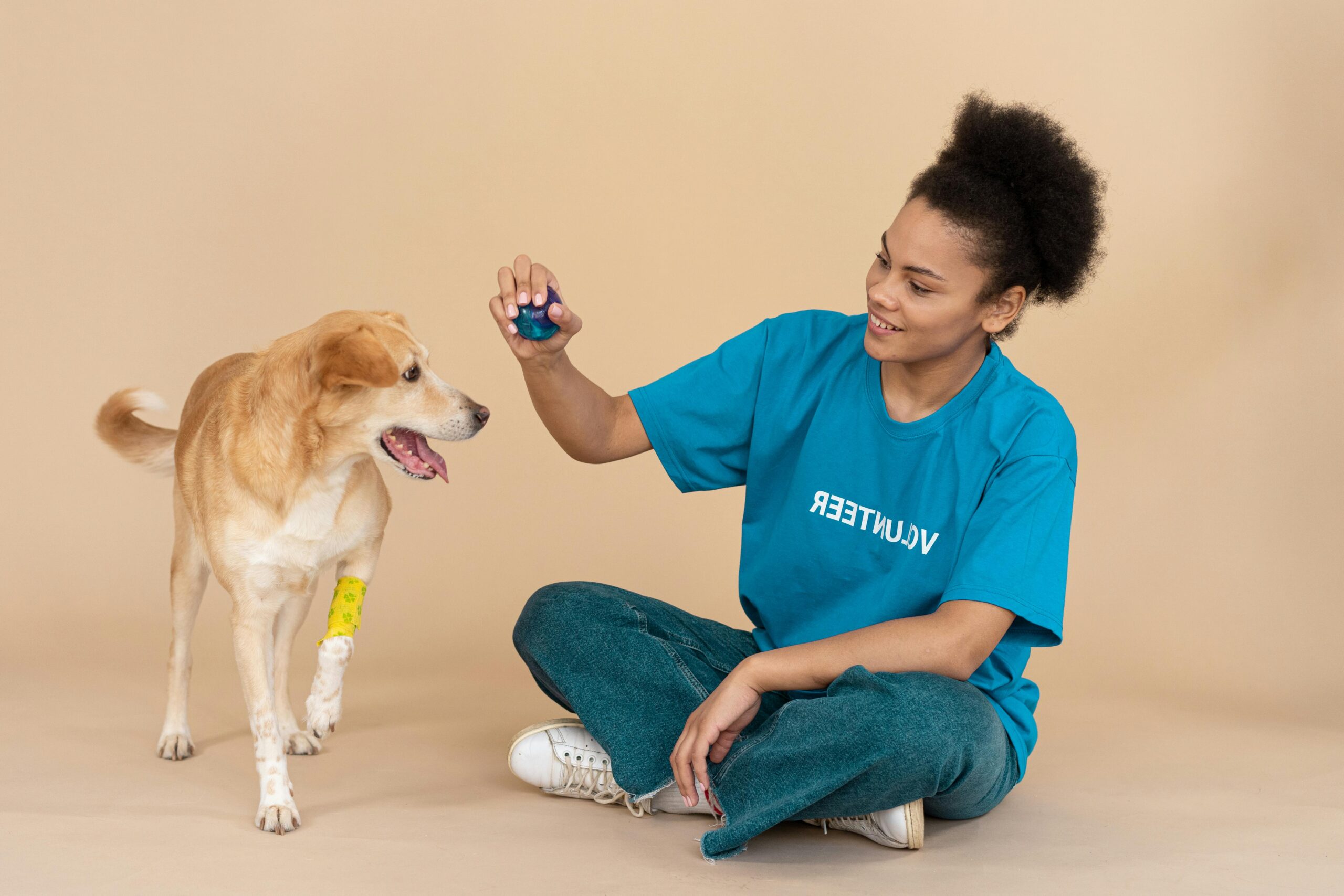Pets are members of our households, not simply friends. Pet owners want to see that our animal companions remain happy and healthy. Pets can have health problems, though, just like people, so it is important to know the warning signals they might show that they want medical attention. Whether your pet is a dog, cat, rabbit, or another kind, early identification of these symptoms can greatly affect their health and welfare.
This article will go over the typical indicators your pet might show that it needs medical attention, thereby guiding you on when to consult a specialist. Early recognition of these symptoms not only guarantees your pet will live a longer, better life but also helps to save their life.

Changes in Appetite or Drinking Habits
Pets are creatures of habit; hence, any abrupt change in their feeding or drinking behaviour should cause worry. Your pet may have an underlying medical problem if you find it consuming more water than usual or if it suddenly stops eating.
Decreased Appetite
less appetite A rapid drop in appetite could indicate digestive problems, oral pain, or perhaps more severe illnesses such kidney disease, liver problems, or cancer. See a veterinarian if your pet seems to be losing weight without clear cause or is not eating at all. Particularly cats might get liver damage from not eating for too long.
Increased Thirst
More thirst is known as polydipsia, and extreme thirst could point to an infection, kidney damage, or diabetes. Your pet should be seen right away if it is drinking more than usual and you find urine increasing. Early diagnosis and treatment help to avoid more serious consequences downstream.
Excessive Hunger
great hunger Your pet may have metabolic problems, parasites, or even diabetes if it seems to be always hungry and is eating far more than normal. Another cause of unexplainable weight gain or loss can be underlying medical issues needing quick attention.
Changes in Behavior or Energy Levels
One of the most often occurring signs that your pet might be sick is behaviour changes. A usually energetic dog or cat becoming lethargic or too aggressive can indicate many medical issues.
Lethargy or Fatigue
Slowness or Weariness Your pet may be sick if they suddenly seem very fatigued, refuse to play, or show little interest in their typical activities. Lethargy can be brought on by infections, pain, arthritis, or even heart disease among other things. Older pets, particularly those with joint problems, are more likely to slow down; thus, it is imperative to be aware of these symptoms.
Aggression or Unusual Behavior
Aggression or unusual behaviour: In usually quiet animals, aggression or irritation can point to pain, discomfort, or an emotional reaction to the disease. Whether from physical harm or an internal conflict, a pet that starts to bite, scratch, or act aggressively may be uncomfortable. To sort out these behavioural changes, one must see a veterinarian.
Restlessness or Anxiety
Restlessness or Anxiety Your pet can be in discomfort or feeling sick if they are too restless, pacing, or acting nervous without clear reason. Furthermore, Anxiety includes neurological disorders, hormone imbalances, and digestive issues. Pay close attention to any apparently out of character indicators of stress or Anxiety.
Respiratory Issues
One should not overlook breathing issues since they can be really severe. Changes in your pet’s respiratory habits or difficulty breathing usually demand quick medical intervention.
Rapid or Labored Breathing
Either rapid or laboured breathing Your pet may have a respiratory problem such pneumonia, asthma, or a heart condition if it seems to be gasping for air or is breathing fast. Usually with a consistent breathing rhythm, dogs and cats should be seen the veterinarian for any obvious change in their breathing pattern.
Coughing or Sneezing
coughing or sneezing Sneezing and coughing could indicate allergies, an infection, or respiratory trouble. Sometimes ongoing coughing could point to kennel cough, heart illness, or even a lung tumor. Your pet should be seen by a veterinarian should their coughing get severe or consistent.
Nasal Discharge or Wheezing
Nasal discharge, or wheezing Additionally indicators of a respiratory illness, allergies, or even something as severe as asthma are nasal discharge or wheezing. See a veterinarian to find the reason and obtain suitable therapy if your pet exhibits wheezing when breathing or a runny nose.
Changes in Coat, Skin, and Grooming Habits
The skin and coat of your pet could offer important information about their general condition. Any odd changes you observe could point to a medical issue.
Hair Loss or Bald Spots
hair loss or bald spots. Should your pet be shedding more than usual or losing hair in patches, these could indicate parasites, skin illnesses, hormonal imbalances, or even allergies. Pet hair loss shouldn’t be taken lightly, particularly if it occurs suddenly or together with other symptoms like redness or irritation.
Itchy or Red Skin
Red or itchy skin. Fleas, allergies, or skin diseases could all cause itching or irritated skin. Your pet may have an allergy or a bacterial or fungal infection if they are licking, biting, or excessively scratching particular body parts. Untreated, this can cause more severe medical problems or more skin damage.
Unusual Lumps or Bumps
A veterinarian should check any lumps or bumps on your pet’s skin since they could point to cysts, abscesses, or tutumoursAlthough some lumps can be benign and others might be cancerous, it is advisable to have them checked thoroughly to rule out any major issues.
Digestive Issues
Like people, dogs can have stomach issues. While some stomach problems are minor and transient, others could point to a more severe illness calling for medical attention.
Vomiting
Vomiting From eating something they shouldn’t to more serious problems like infections, poisons, or gastrointestinal diseases, vomiting is a common complaint with a range of causes. Your pet should be seen by a veterinarian if it vomits often or shows symptoms of suffering following a vomiting episode.
Diarrhea
Diarrhea Subheading Diarrhea can point to an infection, disturbed stomach, or perhaps parasites. Your pet should be seen a veterinarian if it has diarrhea for more than twenty four hours or if blood, fever, or lethargy accompany it. Other problems including dehydration may follow from chronic diarrhea.
Constipation
When your pet struggles to pass stool, constipation can result from discomfort and maybe more major health problems. See a veterinarian if your pet seems to be straining to go or hasn’t had a bowel movement for several days. Impacted bowels brought on by severe constipation need for medical attention.
Unexplained Weight Loss or Gain
Whether your pet is losing or gaining weight, a sudden or notable change could point to an underlying medical issue. Your pet should be checked out by a veterinarian if it is gaining weight despite eating normally or losing weight despite a good appetite.
Unexplained Weight Loss
Unexplained Weight Loss Absence of a documented cause for weight loss could indicate diseases including diabetes, hyperthyroidism, even malignancy. Your pet should be seen if it is losing weight even with regular meals. Sometimes weight loss is associated with a decrease in the pet’s nutrient absorption, which can point to a major illness.
Sudden Weight Gain
Overfeeding, lack of activity, or an underlying medical condition such as hypothyroidism or Cushing’s disease can all contribute to sudden weight gain underheading 6.2. If your pet is fast acquiring weight, you need take early care to avoid health issues connected to obesity.
Difficulty Gaining or Maintaining Weight
Problems Gaining or Maintaining Weight Your pet may have metabolic problems, digestive problems, or parasites if it is finding difficulty acquiring or maintaining a healthy weight. A veterinarian can find the fundamental problem and suggest a suitable course of action.
Pain or Discomfort
One major symptom your pet is not quite right is pain. Though infants cannot express their anguish directly, there are obvious indicators that would enable you to identify suffering.
Limping or Favoring One Leg
Your pet can be limping or avoiding weight on one limb from an injury, arthritis, or another musculoskeletal condition. Take your pet to the veterinarian to rule out fractures or other diseases should the limp continue or get worse.
Unusual Vocalizations Increased
Your pet may be in discomfort if you hear raised vocalizations include snarling, howling, or whining. Pets often vocalize when they are in pain; hence if your pet seems more vocal than usual, it is advisable to find the reason of their discomfort.
Sensitivity to Touch
Your pet may be in pain or discomfort if it flinches or shows extreme sensitivity to touch when you try to pet it. An injury, internal conflict, or infection could all be causes of this. One should pay close attention to any odd responses to touch or handling.
conclusion
Ensuring the welfare of your pet depends on your ability to identify symptoms, suggesting medical attention is necessary. Early identification of health problems can result in improved quality of life for your animal friend and better treatment results. Should you observe any of the above specified symptoms, you should see a veterinarian for a comprehensive check up.
Being alert and proactive about the health of your pet will help you to identify possible problems before they are major. Your pet depends on you for protection and care; hence, keep careful to provide them the best opportunity for a long, happy life by observing changes in their condition.
